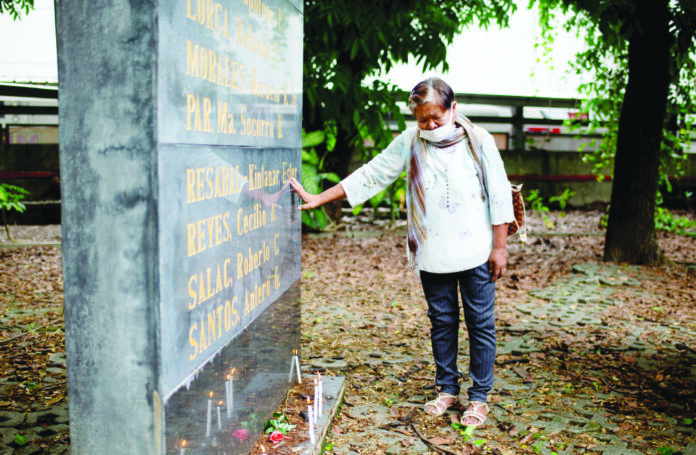MANILA: Days after clinching a landslide victory in one of the most divisive presidential elections in the history of the Philippines, Ferdinand Marcos now faces the challenge of fulfilling his campaign promise to unite the country.
Marcos, the son and namesake of the late dictator, is set to take over from President Rodrigo Duterte as the country’s leader for the next six years.
While the election results are still unofficial, over 98 percent of an initial count has been completed, with Marcos having more than 31 million votes, more than double that of his closest rival, the outgoing Vice President Leni Robredo.
Just stabilize the economy, curb inflation and do not kill us.
Jarrah Brillantes, Community development worker
Other contestants included boxing legend Manny Pacquaio, who is now a senator; Isko Moreno, a former actor and current Manila mayor; and Panfilo Lacson, a senator and former police chief.
Marcos’ running mate, Sara Duterte-Carpio, the daughter of the incumbent president, is also leading in the vice-presidential race with more than triple the votes of Senator Francis Pangilinan, who ran in support of Robredo. They are expected to take office on June 30.
During his election campaign, Marcos, who is widely known by his childhood nickname “Bongbong,” has portrayed himself as the candidate for change, promising unity to voters weary of years of political polarization and pandemic hardship.
“He promised unity. I hope he can do that,” Eccleo Gregorio, a taxi driver in Manila who voted for Marcos, told Arab News. “I also expect him to give Filipinos a better life by bringing down the prices of commodities, gasoline, electricity, and making sure to raise workers’ wages.”
Allan Bergonia, a reporter, expects Marcos’ incoming administration to “show us the real change.”
“As they promised, together, we Filipinos will rise again,” Bergonia said, adding that the victory proved that Filipinos wanted a return to “the old style of Marcos system of government.”
In the months leading up to the election, an online campaign portrayed the Marcos regime as a “golden age” in the country’s history.
Yet for other Filipinos, Marcos’ family name remains a painful reminder of two decades of widespread corruption and human rights abuses committed by his father, who was ousted in a popular uprising 36 years ago.
Jarrah Brillantes, a community development worker, told Arab News that she believed Robredo could solve the country’s woes, not the president-elect of whom she had few expectations.
“Just stabilize the economy, curb inflation and do not kill us,” she said.
Angie, a writer who gave only her first name, said that she was uncertain about what the future would offer under a new Marcos regime.
“I am hoping and praying that the new leadership will be able to bring about their promised peace and unity by digging deep and working hard across political colors to overcome pandemic challenges for the sake of all Filipinos,” she said.
With Marcos promising voters that he will continue Duterte’s policies, Jude, a supporter who works for the current administration, said that he expected the future leader to “sustain the projects and programs” launched by his predecessor.
“The majority of Filipinos have spoken, which should be respected,” he said, requesting that his last name not be revealed. “They want a genuine government, pro-poor, pro-people, that can sustain and further improve what the present administration has implemented.”
Ramon Casiple, executive director of the Institute for Political and Electoral Reform, said that he will reserve his comments until the final count is made public.
But he said that if Marcos takes office, a rapid return of his father’s loyalists is likely.
“The immediate thing that will happen is there will be redeployment of political forces,” Casiple told Arab News.
“But if he does reach out to his political opponents, which is very doubtful, then he might be able to achieve his unifying battle cry … All political forces would have to adjust their strategies vis-a-vis the new Marcos regime.”

